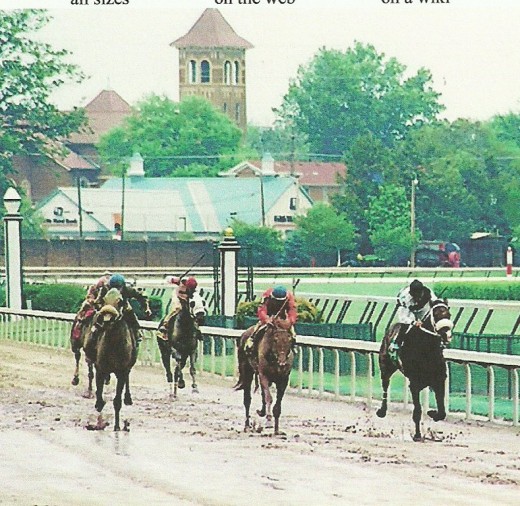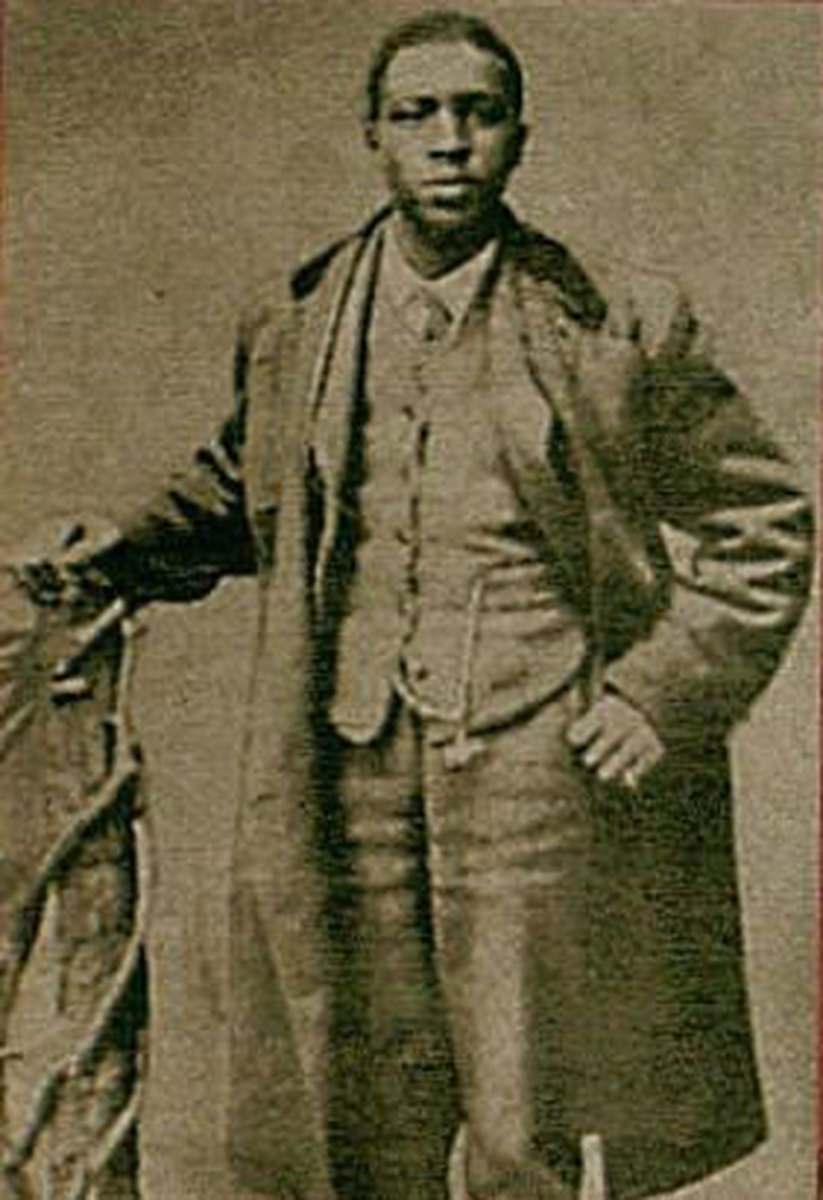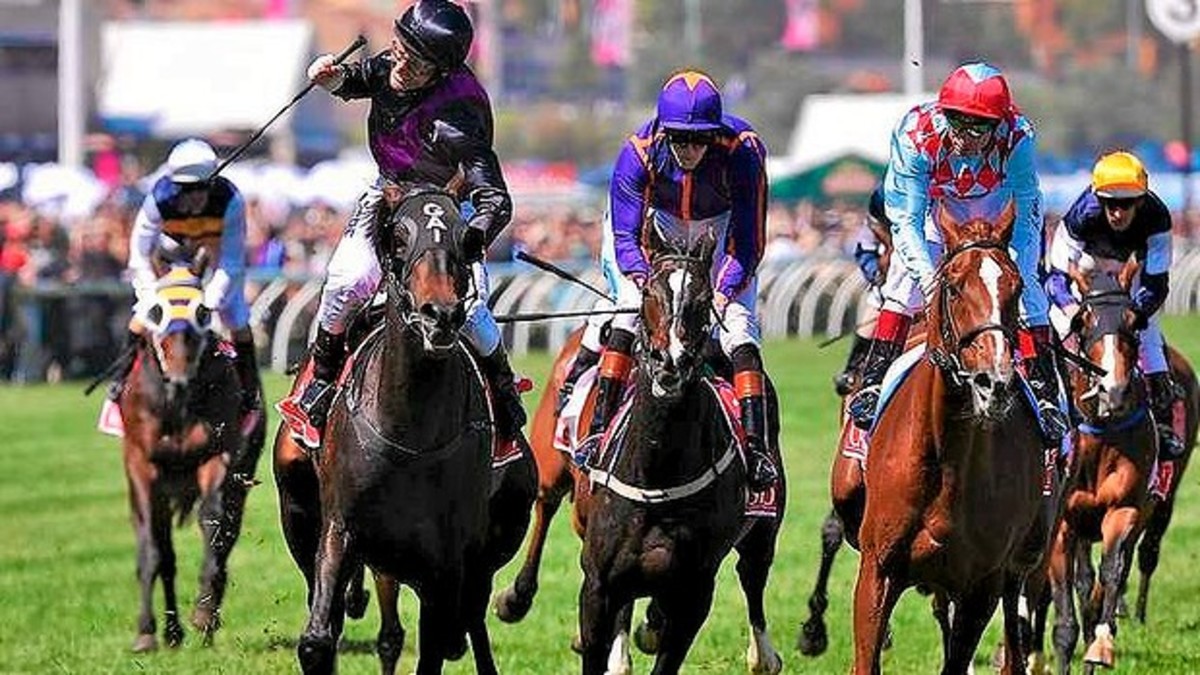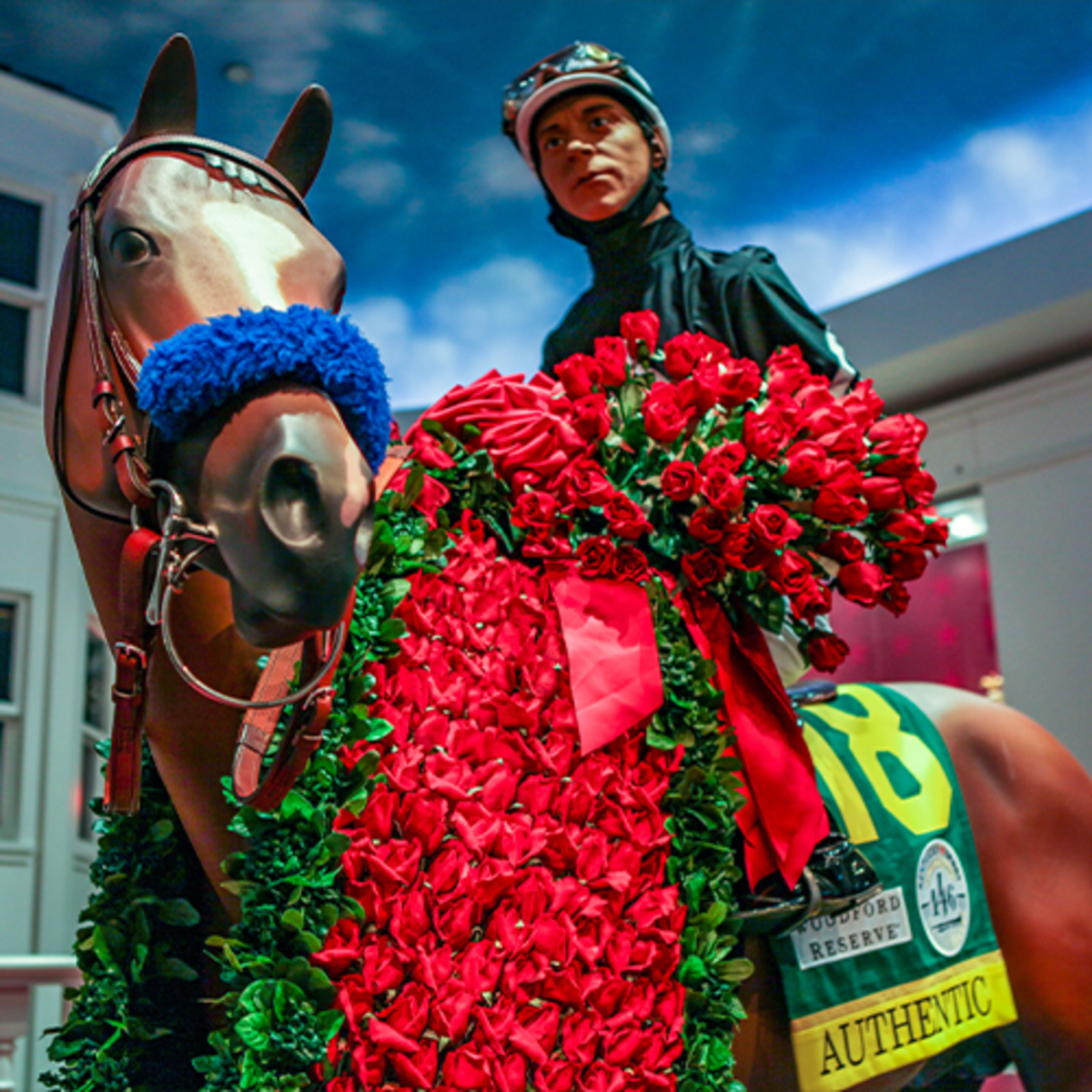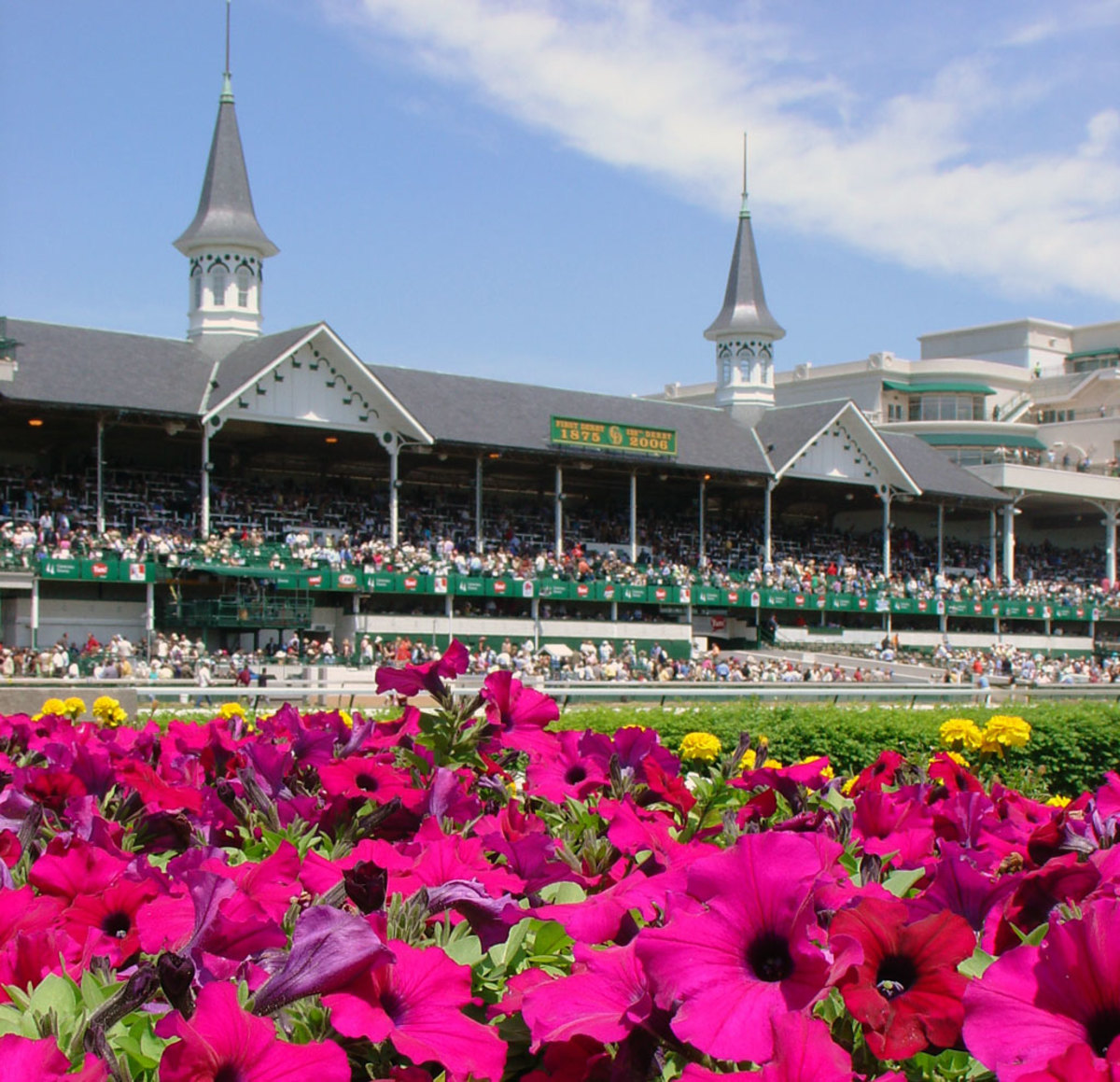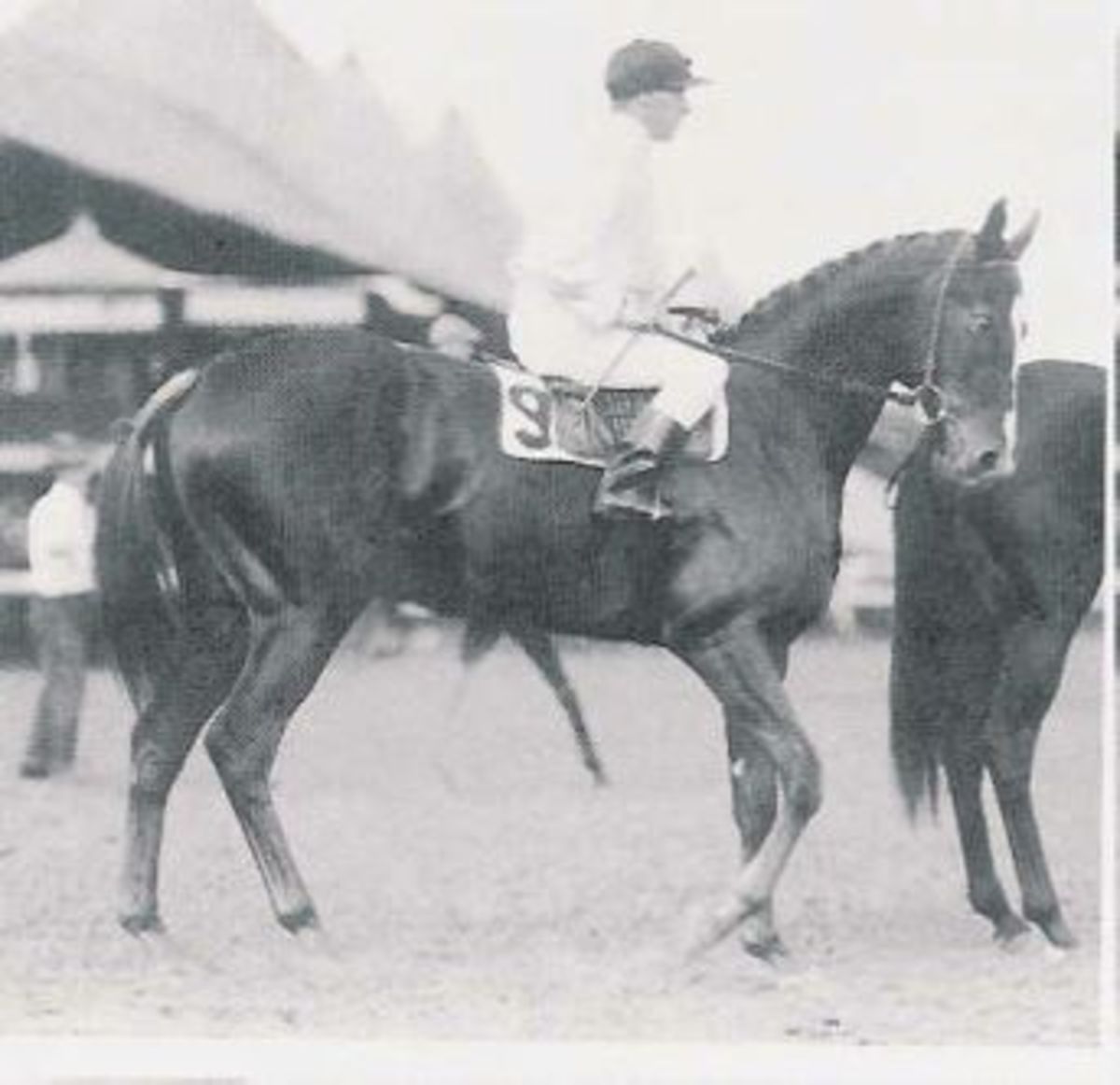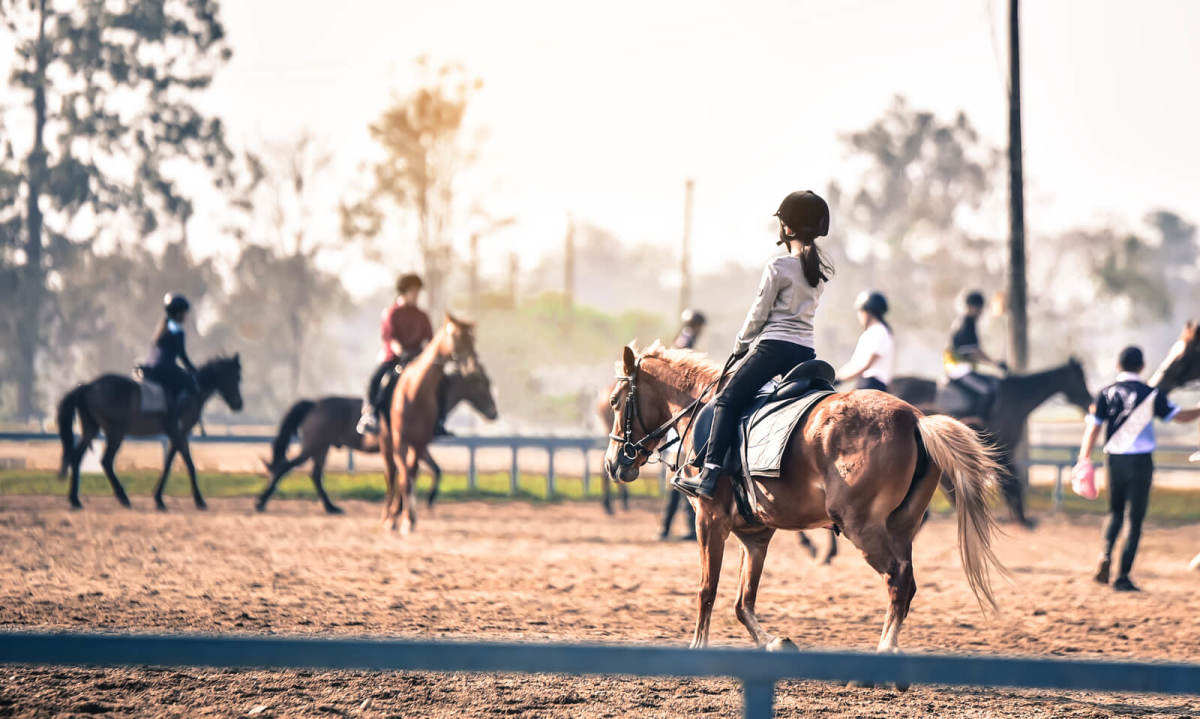What Does Triple Crown Mean In Horse Racing?
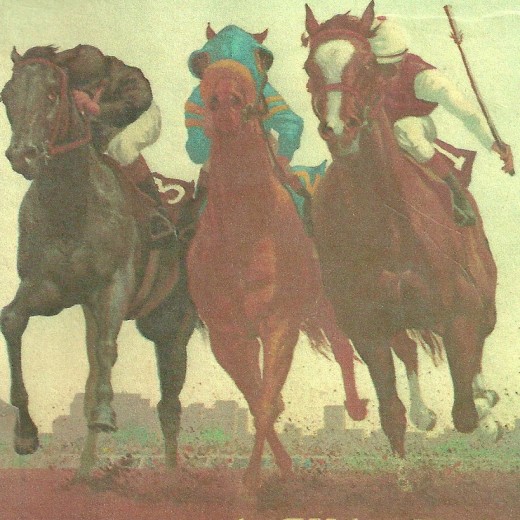
The question posed by PhoenixV "What Does The Triple Crown Mean In Horse Racing?" -- "What is the history behind the Triple Crown exactly"? inspired this Hub for two reasons. The first reason is that the answer first submitted to the question (by DJProfessorK) included erroneous information. And the second reason is that correcting the misinformation required paragraphs of explanation more plentiful than a few reasonably limited statements in the Question/Answer format.
Whose Triple Crown?
England, Canada, Ireland, Germany, Australia, and other countries have their own versions of a Triple Crown for Thoroughbreds, but the American Triple Crown is most often the intended subject when the words "Triple Crown" of horse racing are printed.
The Kentucky Derby
America's Kentucky Derby is the most famous horse race in the world today, but it wasn't always so. It was Churchill Downs track official Colonel Matt J. Winn who propelled Kentucky Derby fanfare to international status from its humble beginnings in Louisville, Kentucky. And the filly Regret won the hearts of local horsemen when she triumphed in the Derby in 1915. Her victory in a heretofore mostly male contest for three-year-old Thoroughbreds captured attention beyond the Kentucky region.
Throughout the history of the Kentucky Derby, just two other fillies have joined Regret in winning the event: Genuine Risk in 1980 and Winning Colors, who triumphed in 1988.
The American Triple Crown
The term "triple crown" is applied to many events in a number of countries. In American lore, Triple Crown is most famously used to describe three horse races exclusively held annually for three-year-old racers in a tight timeframe. The schedule itself has become more controversial in today's racing because horses are not raced as often as they were in the past. The three races were held in their beginning at various distances and with different scheduling. Racehorses of the past sometimes ran two races in a week's time, or less. Today's horses typically run little more than once a month on their way to the Triple Crown.
The present-day schedule for the races has been on-going for over 60 years:
- The Kentucky Derby, Churchill Downs, Louisville, Kentucky, 1-1/4 miles; the first Saturday in May (begun in 1875)
- The Preakness Stakes, Pimlico RaceCourse, Baltimore, Maryland, 1-3/16 miles; two weeks later (first raced in 1873)
- The Belmont Stakes, Belmont Park, Elmont, New York, 1-1/2 miles; three weeks after the Preakness (established in 1867)
Since their beginnings, the three races have been run almost exclusively at the same locations.
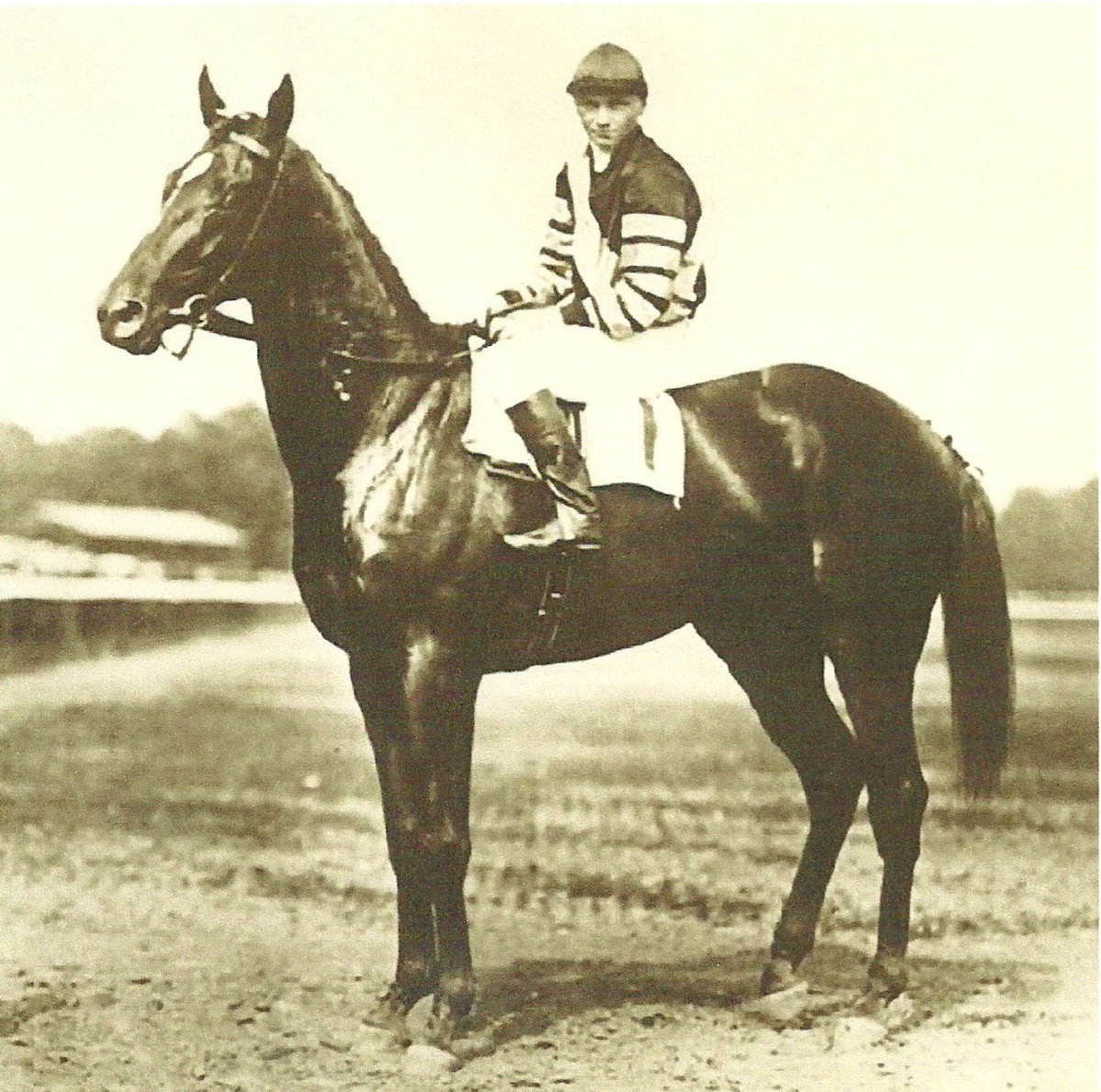
America's Most Famous Horses
Man o' War, America's most famous Thoroughbred until Secretariat catapulted to Triple Crown fame in 1973, didn't run in the 1920 Kentucky Derby because his owner, Samuel D. Riddle, believed the Derby was too long a race for a three-year-old in the spring and because "easterners" like him believed the Derby was too "western".
However, in October of 1920, after Man o' War had put crushing defeats on his opponents in the Preakness, the Belmont, the Dwyer Stakes and the Withers Stakes, Riddle was quick to put his just once-beaten three-year-old Man o' War against 1919's first ever Triple Crown winner, Sir Barton, now four years old. Man o' War punished the Triple Crown champion by seven lengths in the challenge race of 1-1/4 miles. (Ironically, Man o' War's only career defeat came in his two-year-old campaign at the hooves of a fella named Upset.)
By the time Man o' War's son War Admiral was three in 1937, Riddle couldn't wait to jump into the Triple Crown pool. And War Admiral became the fourth ever winner of the Triple Crown.
Three horses had won all three Triple Crown races before 1937: Sir Barton (1919), Gallant Fox (1930), and Gallant Fox's son, Omaha (1935). The three-race event was named the Triple Crown after Gallant Fox's victories in all three contests.
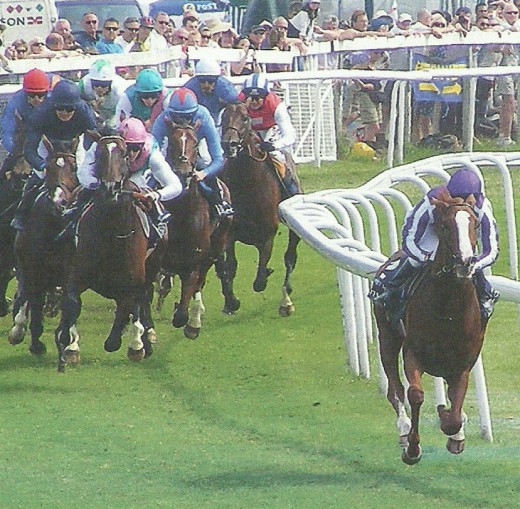
American Triple Crown Champions
Eleven Thoroughbreds, all males, have won the American Triple Crown since its inception. They are:
- 1919, Sir Barton
- 1930, Gallant Fox
- 1935, Omaha, son of Gallant Fox
- 1937, War Admiral, son of Man o' War
- 1941, Whirlaway
- 1943, Count Fleet
- 1946, Assault
- 1948, Citation
- 1973, Secretariat
- 1977, Seattle Slew
- 1978, Affirmed
Since Affirmed won the Triple Crown in 1978, Sunday Silence (1989), Silver Charm (1997), Real Quiet (1998), and Smarty Jones (2004) finished second in the Belmont Stakes after winning the Kentucky Derby and the Preakness. Before Affirmed's triple victory, four Triple Crown hopefuls, Pensive (1944), Tim Tam (1958), Forward Pass (1968), and Majestic Prince (1969), all raced to the wire second in the Belmont after sweeping the first two races.
Forward Pass finished second in the 1968 Kentucky Derby but was placed first after winner Dancer's Image was disqualified for failing a post-race test for an illegal drug.
Kentucky Derby and Preakness winner Charismatic broke down in the 1999 Belmont Stakes yards from victory, finishing third. Northern Dancer (1964), Spectacular Bid (1979), and Pleasant Colony (1981) also finished third in their Belmont runs after winning the first two legs of the Triple Crown.
In today's Triple Crown racing, notably since Affirmed's Triple Crown triumph, most Thoroughbreds who win one, or more of the trio of races are retired after their three-year-old campaign because their stock rises dramatically in the breeding shed.
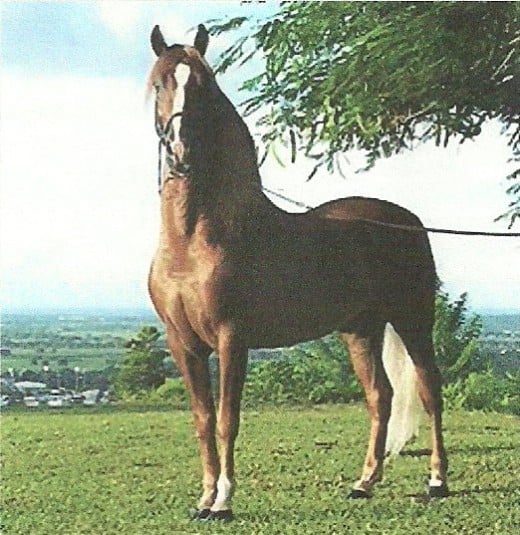
International Triple Crown Races
In many countries, fillies have their own Triple Crown races, although a female is occasionally entered in the males' Triple Crown, especially in the United States. Most recently remembered American females Rachel Alexandra, Rags to Riches, and Eight Belles won the 2009 Preakness, nosed out Curlin in the 2007 Belmont, and ran second to Big Brown in the 2008 Derby, respectively.
The American Filly Triple Crown and the original New York Triple Tiara have both represented the filly triple series, while changes and tweaks to the series' races have been instituted over the years. Only Davona Dale (1979) won the national Filly Triple Crown. She also won the original New York Triple Tiara the same year. Seven others, including the unforgettable Ruffian (1975), have triumphed in all three races of the original New York Triple Tiara.
In England, nine fillies have won the Triple Crown for females, while 15 males have captured the boys' Triple Crown. Nijinsky II, of great fame, last won the English Triple Crown in 1970. The other fourteen winners turned the trick from 1853 through 1935.
Ireland's Triple Crown features one race, the Irish St. Leger, which is open to older horses, unlike most Triple Crown's that are run exclusively by three-year-olds. Only Museum (1935) and Windsor Slipper (1942) have ever won the Irish Triple Crown.
Australia entertains a Triple Crown for three-year-olds and a Triple Crown for two-year-olds. Imagele, Martello Towers, Moorland, and Octagonal are the country's three-year-old Triple Crown champions. Juvenile (two-years-old) victors include Baguette (1970), Luskin Star (1977), Tierce (1991), the filly Burst (1992), and Dance Hero (2004).
Germany has a unique Triple Crown history. Just one Thoroughbred has won its Triple Crown event, Konigsstuhl (1979). As all Triple Crown races are rated grade one (USA), or group one (European) competition, Germany won't see another Triple Crown champion unless it re-grades its Triple Crown races. Its St. Leger, previously graded one in the Triple Crown series, is now rated group three, disqualifying the event from Triple Crown race status.
Sealy Hill won the Canadian Fillies Triple Crown in 2007, the only female to do so. Eight males have won the Canadian triple for boys, the last being Wando in 2003.
Japan also holds two Triple Crowns, one for females and one for males. An offspring of American Sunday Silence, who served many years in stud in Japan, last won the Japanese Triple Crown for males in 2005. His name is Sudden Impact. Five other boys have taken the title between 1941 and 1994, while just three females have won the girls' title. Mejiro won in 1986; Still in Love, another Sunday Silence progeny, in 2003; and Apapane in 2010.
The only Thoroughbred to win the Hong Kong Triple Crown was River Verdon in 1994.
In Puerto Rico, the Sport of Kings boasts of Camarero, victor of not only the 1954 Triple Crown, but also of 56 consecutive races. The most recent Triple Crown winner is 2011's Don Paco. Seven others between Camarero and Don Paco succeeded in capturing the Puerto Rican Triple Crown.
Invasor, crowned in the United States as Horse of the Year in 2006, is one of only three Triple Crown winners in Uruguay. Invasor won his native country's crown in 2005.
Venezuela and Chile each have less than 10 Thoroughbreds representing their countries in horse racing as Triple Crown winners.
America remains a lady in waiting since 1978, when Affirmed beat Alydar in three thrilling races and won the coveted Triple Crown. There have been scintillating tries for the triple in the Belmont Stakes -- a la Real Quiet, beaten a nose in 1998 -- great expectations, as from the hugely popular Smarty Jones of 2004, and colossal disappointments like Big Brown in 2008 -- and still America waits.
In Triple Crown racing, many go to the starting gate, but few triumph.
